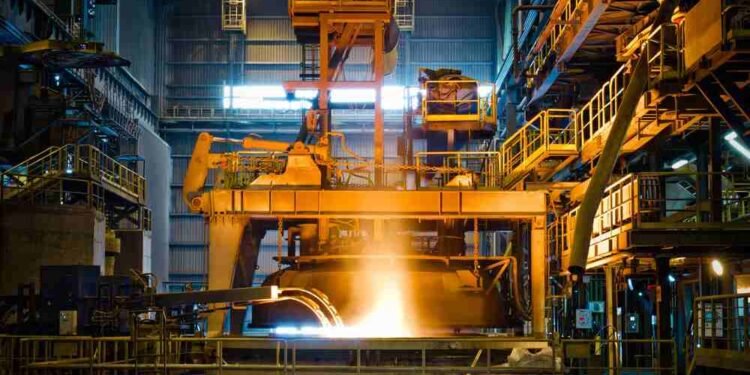Steel manufacturing is a symphony of precision, timing, and heavy machinery. Yet, without expert control integrators ensuring every part of the system works in harmony, the entire operation can falter. These professionals don’t just troubleshoot—they revolutionize processes, blending advanced technologies with industry expertise to drive efficiency and innovation. Here’s how expert control integrators are transforming the steel industry in ways you might not have considered.
Improving Process Precision with Custom Automation Solutions
In steel production, precision isn’t just desirable—it’s non-negotiable. From managing exact temperatures in furnaces to controlling the speed of rollers, even minor missteps can result in significant material losses or compromised quality. Expert control integrators craft custom automation solutions tailored to each facility’s unique requirements, ensuring seamless coordination across all stages of production.
Automation doesn’t mean replacing people; it means empowering them. Reliable control integrators design systems that allow operators to make adjustments with pinpoint accuracy, ensuring every process runs at its optimal capacity. This fine-tuning reduces waste, improves product consistency, and enhances overall productivity. The result? A steel operation that delivers perfection at scale.
Reducing Downtime Through Advanced System Integration and Real-time Monitoring
Downtime in steel manufacturing is not just inconvenient—it’s costly. Every hour of lost production translates to financial loss and disrupted schedules. Professional control integrators excel at reducing downtime by integrating advanced systems that monitor machinery and processes in real time.
With expert control integrators setting up intelligent monitoring systems, potential issues can be detected before they escalate into breakdowns. For example, sensors in a rolling mill might detect vibrations indicating wear on a critical part, prompting maintenance before the equipment fails. This proactive approach keeps production running smoothly and minimizes unplanned stops.
Moreover, real-time integration ensures that when downtime does occur, the systems can quickly pinpoint the root cause. This rapid troubleshooting capability saves hours of guesswork, allowing for faster resolutions and minimal impact on production timelines. The combination of reduced downtime and improved response times is a game-changer in steel production.
Optimizing Energy Use with Smarter Controls for High-efficiency Operations
Energy consumption is a significant cost driver in steel manufacturing. From powering massive furnaces to operating heavy machinery, the industry demands an incredible amount of energy. Expert control integrators are redefining how energy is managed by introducing smarter controls that maximize efficiency.
These systems use advanced algorithms to optimize energy usage at every step of production. For example, they can regulate furnace temperatures based on production schedules, reducing energy waste during idle periods. Smarter controls also ensure machinery operates at peak efficiency, cutting unnecessary power consumption without compromising performance.
By working with experienced control integrators, steel manufacturers can reduce their carbon footprint while saving on operational costs. This dual benefit of environmental and economic efficiency makes smart energy controls an essential part of modern steel manufacturing.
Enhancing Safety Measures by Automating High-risk Tasks in Steel Production
Safety is paramount in steel manufacturing, where workers are often exposed to extreme heat, heavy machinery, and hazardous materials. Professional control integrators play a vital role in enhancing safety by automating high-risk tasks that would otherwise require human intervention.
For instance, tasks such as handling molten steel or operating large-scale machinery can be managed through robotic systems programmed by reliable control integrators. These systems not only reduce the risk of accidents but also improve efficiency by performing tasks with consistent precision.
Additionally, control systems designed by expert integrators include fail-safes and emergency protocols that react instantly to potential dangers. Whether it’s shutting down machinery during a malfunction or alerting operators to hazardous conditions, these systems prioritize worker safety without slowing down production.
Streamlining Workflow Coordination Across Multiple Production Stages
Steel manufacturing involves multiple interconnected stages, from raw material preparation to final finishing. Ensuring these stages flow seamlessly is no small feat, but it’s a challenge that expert control integrators are uniquely equipped to handle.
By developing centralized control systems, these professionals ensure that all equipment communicates effectively. For example, when raw materials are processed in one section, the system automatically adjusts downstream operations to match the output. This synchronization minimizes bottlenecks and keeps production running smoothly.
Beyond machinery, workflow coordination also benefits the human side of operations. With streamlined systems, operators receive clear instructions and real-time updates, reducing errors and miscommunication. Experienced control integrators make the entire process more cohesive, leading to increased efficiency and a more harmonious workplace.
Scaling Operations Seamlessly with Adaptable and Future-ready Control Systems
Steel manufacturing isn’t static; it evolves with market demands, technological advancements, and changing regulations. To stay competitive, facilities need control systems that can adapt to these shifts. Expert control integrators design systems that are not only robust but also scalable, making it easy for manufacturers to expand or upgrade operations as needed.
Whether it’s adding new machinery, integrating emerging technologies, or meeting stricter environmental standards, these adaptable systems ensure a smooth transition. Reliable control integrators future-proof their designs, so manufacturers aren’t constantly overhauling their processes to keep up with the industry.



